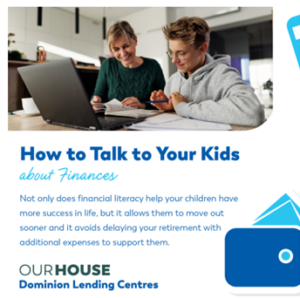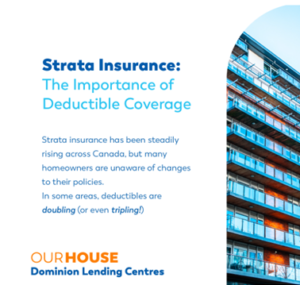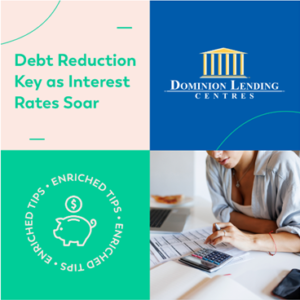 Market Beware: Subject Free Offers.
Market Beware: Subject Free Offers.
When it comes to purchasing a home, most offers include conditions or subjects, which are requirements or criteria to be met before the sale can be finalized and the property is transferred. Some of the most common subjects include:
- Financing approval
- Home inspection
- Fire/home insurance protection
- Strata document review if applicable
The purpose of these subjects is to protect the buyer from making a poor investment and ensure that there are no hidden surprises when it comes to financing, insurance, or the state of the property.
These conditions are written up in the purchase offer with a date of removal. This is agreed to by the seller before the sale is finalized. Assuming the subjects are lifted by the date of removal, the sale can go through. If the subjects are not lifted (perhaps financing falls through or something is revealed during the home inspection), the buyer can waive the offer and the purchase becomes void.
However recently, especially in heightened housing markets, there has been an emergence of subject-free (or condition-free) offers. These are purchase offers that are submitted without any criteria required! Essentially, what you see is what you get.
Below we have outlined the impact of subject-free offers on both buyers and sellers to help you better understand the risks and outcomes:
Pros of Subject-Free Offers
- Buyers: The main benefit of a subject-free offer for a buyer is the ability to “beat the competition” in a heated market. However, it is not without risks.
- Sellers: Typically, a subject-free offer will include a competitive price, willingness to work with the dates the seller prefers, and evidence that the buyer has already done as much research as possible. If time is sensitive for the seller because they are trying to purchase another home or want to move as soon as possible, they may also choose your offer over subject offers to expedite the process.
Cons of Subject-Free Offers
- Buyers: As a buyer submitting a subject-free offer, you are assuming a great deal of risk in several areas including financing, inspection, and insurance:
- Financing: While buyers may feel that they have a pre-approval and so they don’t require a subject to financing, it is important to recognize that a pre-approval is not a guarantee of financing. If you are submitting a subject-free purchase based on a pre-approval, buyer beware. The financing is subject to the lender approving the property and the sale; from the price and location to type of property or other variables the lender deems important. By submitting a subject-free offer without a financing guarantee (or an inspection, title check, etc.), there is a risk that the deal can fall through. Even when you do not include subjects on the offer, you still are required to finance your purchase. In addition, as deals are submitted typically with a deposit, there is a risk that if the subject-free offer falls through the buyer will lose their deposit. This amount can range vary in the thousands and is typically a percentage of the purchase price or down payment.
- Inspection & Insurance: If a buyer is also opting to skip the home inspection and home insurance protection subjects to have the offer accepted, then they assume huge risk as they do not know what they are getting and whether or not the property is up to code for insurance.
- Due Diligence: With subject-free offers, there is no opportunity for due diligence after the offer has been made. This requires the buyer to do all their research before their initial bid. Because it is firm and binding, a buyer who decides to back out will likely be met with serious legal ramifications. Submitting an offer without subjects is not due diligence and it is at the buyer’s behest.
- For Sellers: When it comes to the individual selling the property, there is less risk with subject-free offers but not zero. While the benefit is essentially there is no wait to accept the offer on the seller’s side, they do not know for sure if financing will come through.
Financing Around Subject-Free Offers
When submitting a subject-free offer, it is essentially up to the buyer to do as much due diligence as possible before submitting. They will need to identify what the lender is looking for to make sure they walk away with a mortgage. Though approval is never certain, prospective buyers placing a subject-free offer should do their very best to secure financing beforehand.
Contractual Obligations
Be mindful when it comes to purchasing offers versus purchase agreements. While your purchase offer is a written proposal to purchase, the purchase agreement is a full contract between the buyer and seller. The purchase offer acts as a letter of intent, setting the terms you propose to buy the home. If financing falls through, for example, then the contract is breached and this is where the buyer may lose the deposit.
It is also important to be aware of a breach of contract in the event that a seller chooses to take action. For example, if you submit a subject-free offer of $500,000 and cannot secure financing for that offer and the seller turns around and is only able to get a $400,000 deal with another buyer, they could potentially sue the initial buyer for the difference due to breach of contract.
Preparing a Subject-Free Offer
If you have decided to go ahead with a subject-free offer, regardless of the risks, there are some things you can do to mitigate potential issues, including:
- Get Pre-Approved: Again, this is not a guarantee of financing when you do make an offer, but it can help you determine whether you would be approved or not.
- Financing Review: Identify what the lender is looking for to make sure they walk away with a mortgage. Though approval is never certain, prospective buyers placing a subject-free offer should do their very best to secure financing beforehand.
- Do Your Due Diligence: Look into the property and determine if there have been major renovations or a history of damage. This could come in the form of a Property Disclosure Statement. While this statement cannot substitute a proper inspection, it can help identify potential issues or areas of concern. If possible, conduct an inspection before submitting your bid/offer.
- Get Legal Advice: This can help you determine your potential risk and ramifications of the offer should it be accepted, or otherwise.
- Title Review: Be sure to review the title of the property.
- Insurance: Confirm that you are able to purchase insurance for the home. Keep in mind, an inspection may be required for this but in some cases, you can substitute for a depreciation report if it is recent.
- Strata Documents (if applicable): Thoroughly review strata meeting minutes and any related documents to determine areas of concern.
While there are things that can be done to help with subject-free offers, it is still risky. Ultimately submitting an offer with subjects gives you the time and ability to gather information on the above, as well as access to the property or home for inspections.
If you are intent on submitting a subject-free offer, be sure to discuss it with your real estate agent as they can determine if a subject-free offer is necessary, or if perhaps a short closing window would suffice to seal the deal. A good realtor will keep you informed of potential interest and other bids during the process as well. Their goal should be to maximize your opportunity and minimize your risk. In addition, before making any offers, be sure to check with me to discuss your mortgage and financing so you can make the best decision.
 How to Talk to Your Kids about Finances.
How to Talk to Your Kids about Finances.
 Strata Insurance: The Importance of Deductible Coverage
Strata Insurance: The Importance of Deductible Coverage It’s Time to Crush Your Credit Card Blues
It’s Time to Crush Your Credit Card Blues Market Beware: Subject Free Offers
Market Beware: Subject Free Offers
 Debt Reduction Key as Interest Rates Soar
Debt Reduction Key as Interest Rates Soar